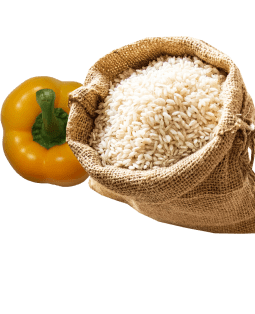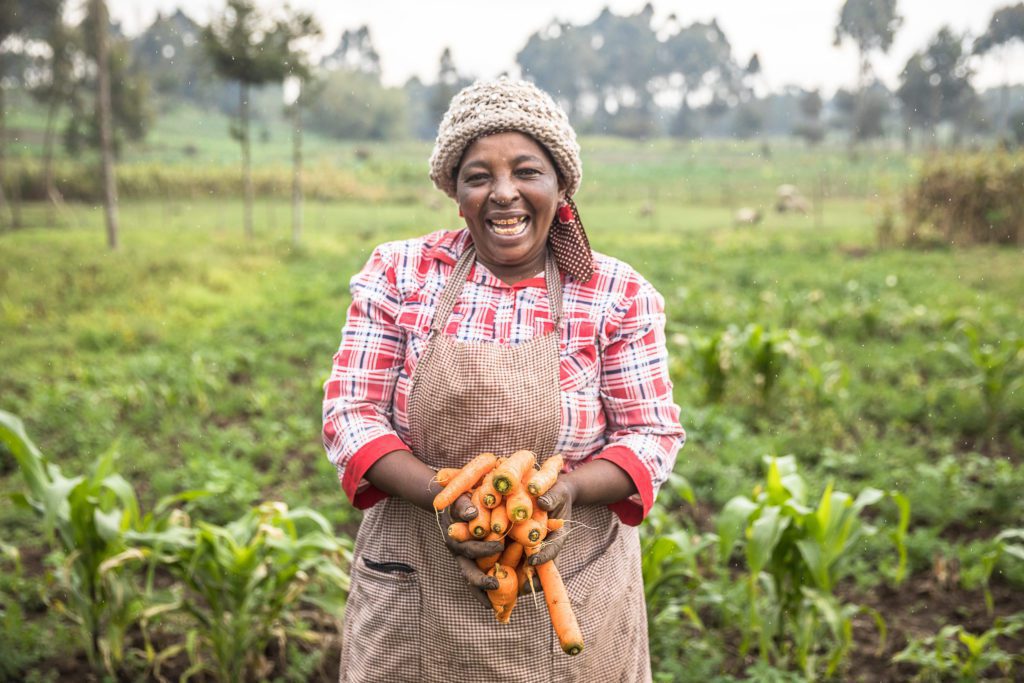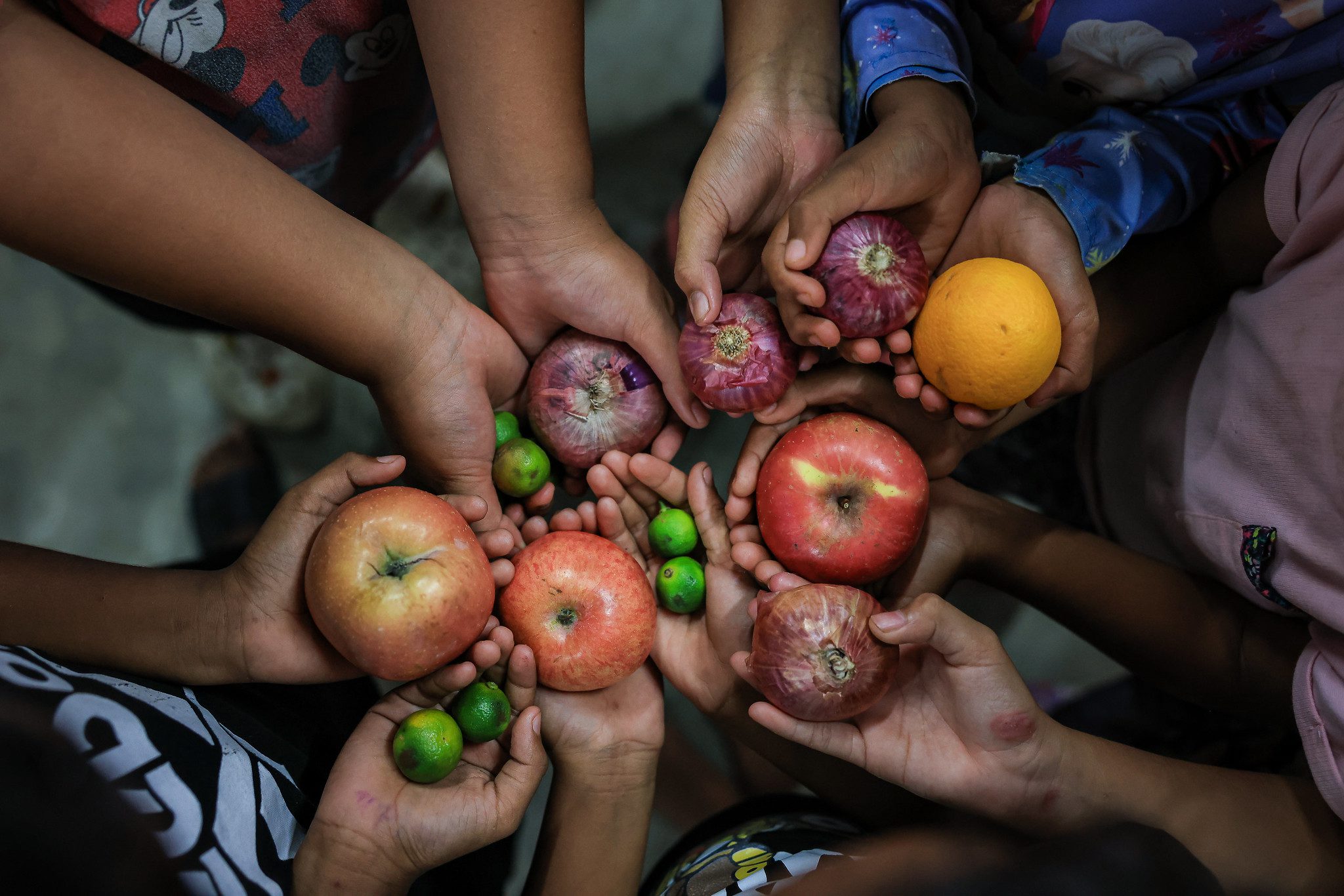By Katie Lutz
Seven days a week, Scholars of Sustenance (SOS) Foundation Thailand has trucks on the move in Bangkok, collecting fresh food before it goes to waste and delivering to communities facing hunger.
“Our Food Rescue Program is the core of our work at SOS,” explained director of operations at SOS Thailand, Tanaporn (Fai) Oi-isaranukul. “Every day, our Food Rescue Ambassadors drive refrigerated trucks around the city to designated food donation pick-up locations, including hotels, supermarkets, restaurants, food retailers, and food manufacturers. The Food Rescue Ambassador is trained in proper food safety techniques and meticulously tracks and inputs data from each donor location and at the end of the day delivers to their designated community.”
Since its founding in 2016, SOS Thailand programs have recovered approximately 7.5 million kilograms of surplus food, served 31.6 million meals to more than 3,000 communities in Bangkok, Phuket, Hua Hin, and Chiang Mai, and helped avoid 19,037 tons of CO2 emissions.
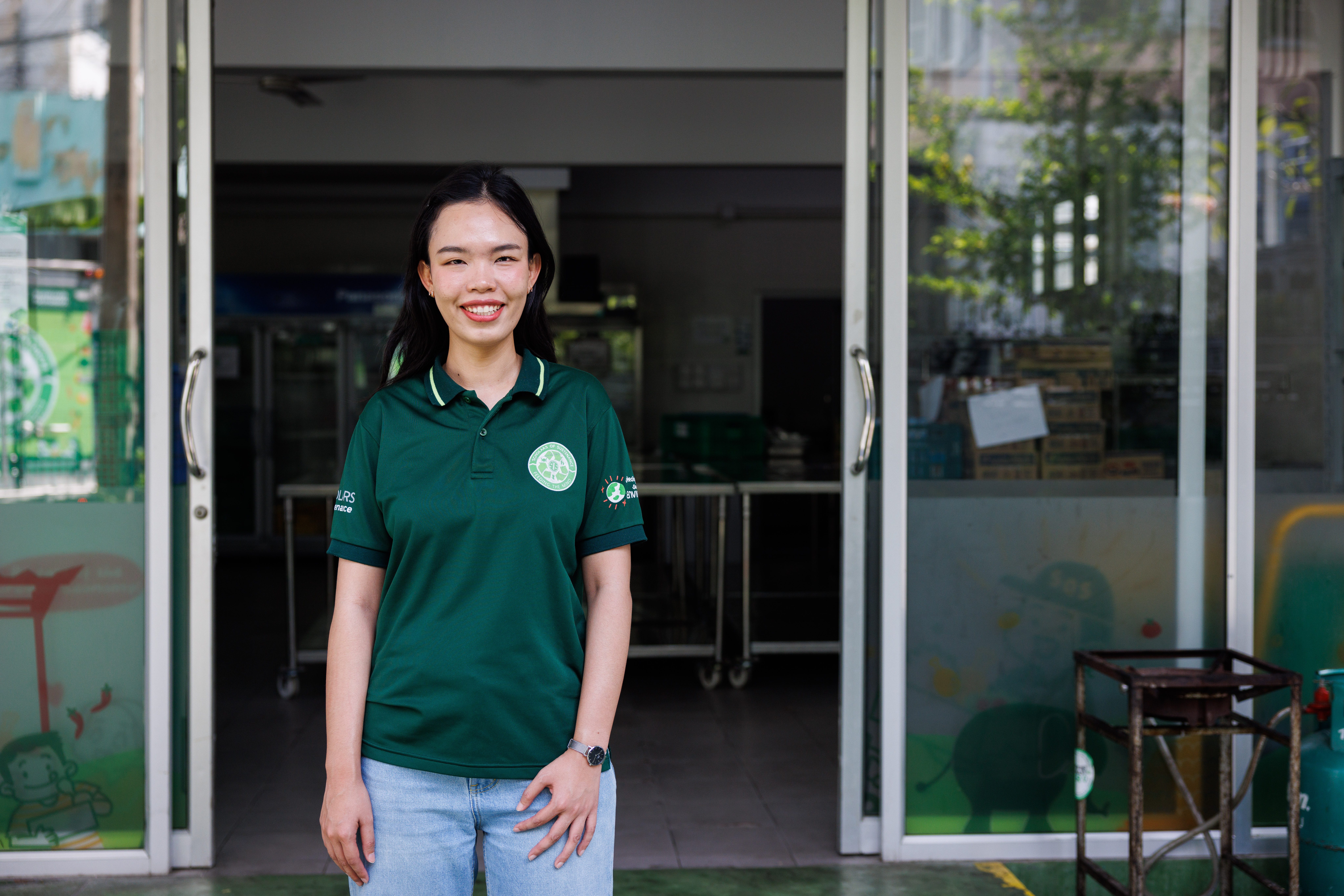
One of SOS Thailand’s main operations is the Food Rescue Program, which uses the direct distribution model, meaning the donated food is collected from designated pick-up locations (hotels, supermarkets, restaurants, food retailers, food manufacturers) and delivered directly that day to communities or agencies in need of support.
SOS Thailand has a fleet of 13 trucks, operated by 29 Food Rescue Ambassadors that recover an average of five tons of food a day from across the city. In Bangkok, trucks travel approximately 150 kilometers every day to recover food from an average of 50 pickup spots.
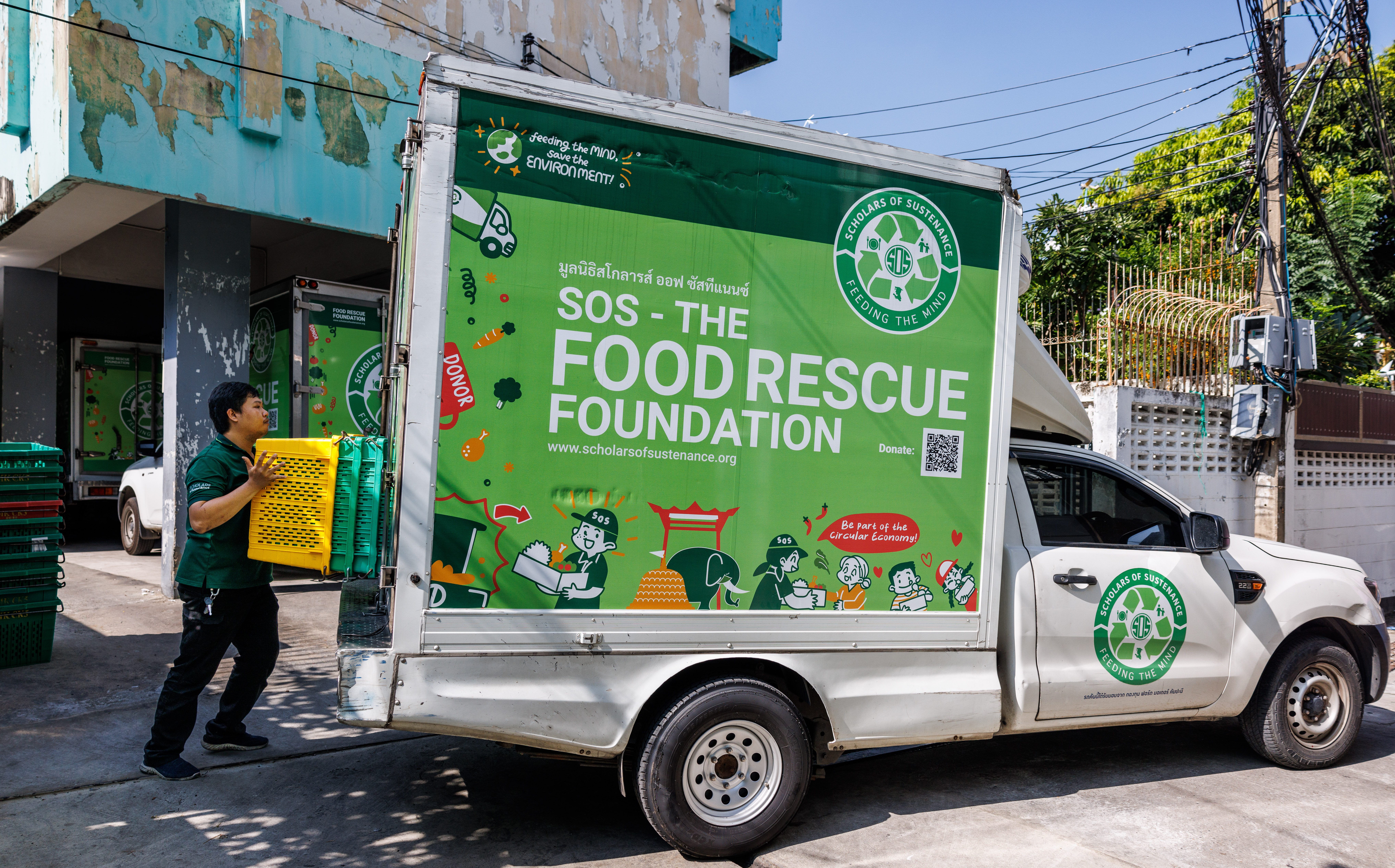
“As a driver for SOS, I have gained many experiences I treasure,” said Teerayut (Tong) Uttha. “I have visited communities with hardships and people with more obstacles in life than I ever could have imagined. We help the poor, the unemployed, children, and the sick.”
Uttha has been a Food Rescue Ambassador for nearly six years and takes great pride in his role. On average, SOS drivers visit anywhere from 15-20 donation sites a day to collect surplus food.
On this day, Uttha visits 19 donation pickup spots, starting the day at Thai food retail distributor and grocery store, Tops, and continuing to recover food from malls, hotels, grocery stores, bakeries, and even a school.
Uttha and SOS use a phone application system to track where food donations need to be picked up on any given day. Uttha inspects and weighs all of the incoming food and grocery products and then tracks how much and what type of products are recovered from each pick-up location in the app. Over the course of the day, Uttha collects prepared meals, fresh fruits and vegetables, bakery items, and dairy products.
Once the food collection is complete, Uttha heads to the On Nut 14 Rai Community in Prawet District on the southeast side of the city for his final stop of the day, the distribution site.
“At the end of the day, its heartwarming to see the joy I bring to communities with a meal,” said Uttha.
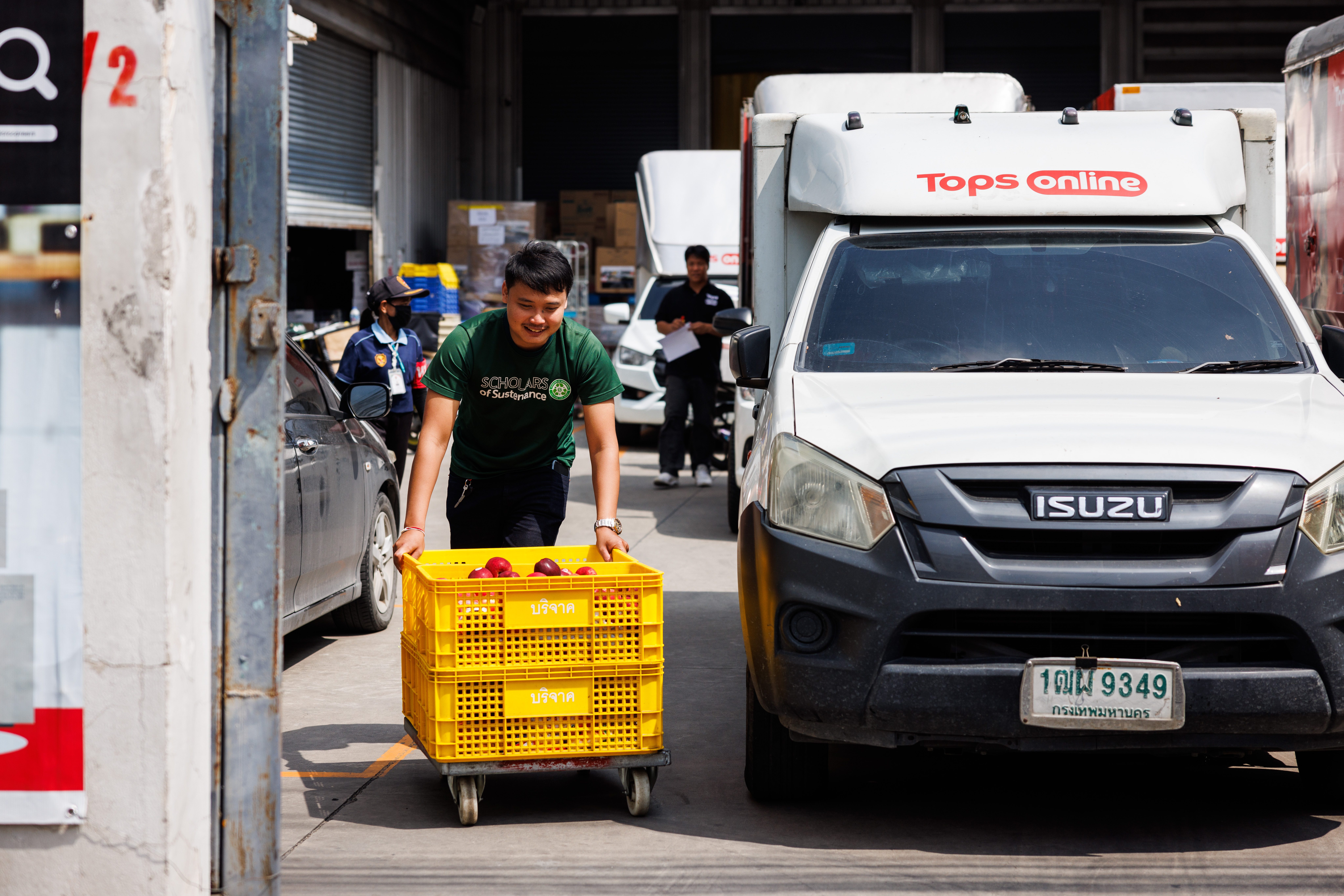
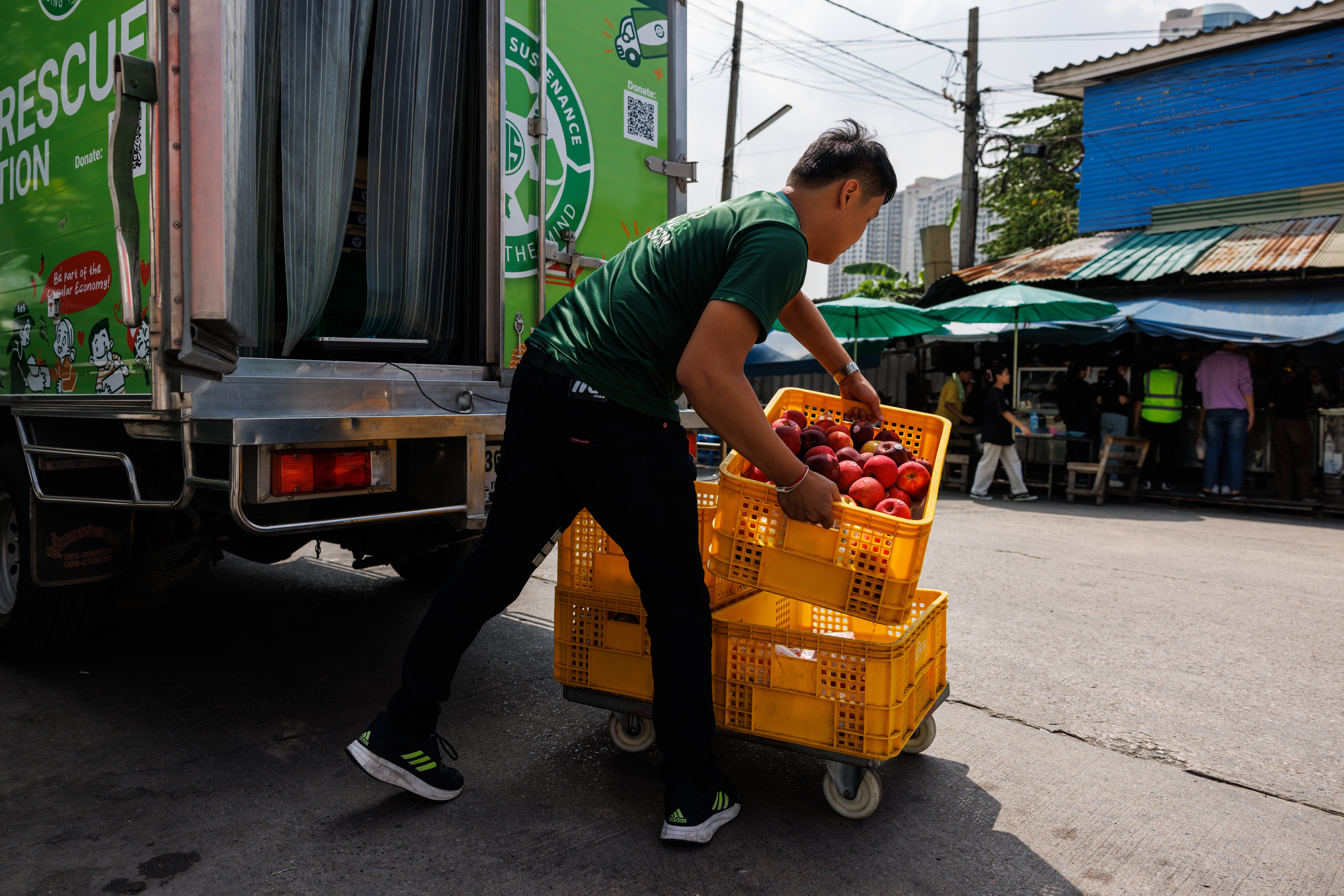
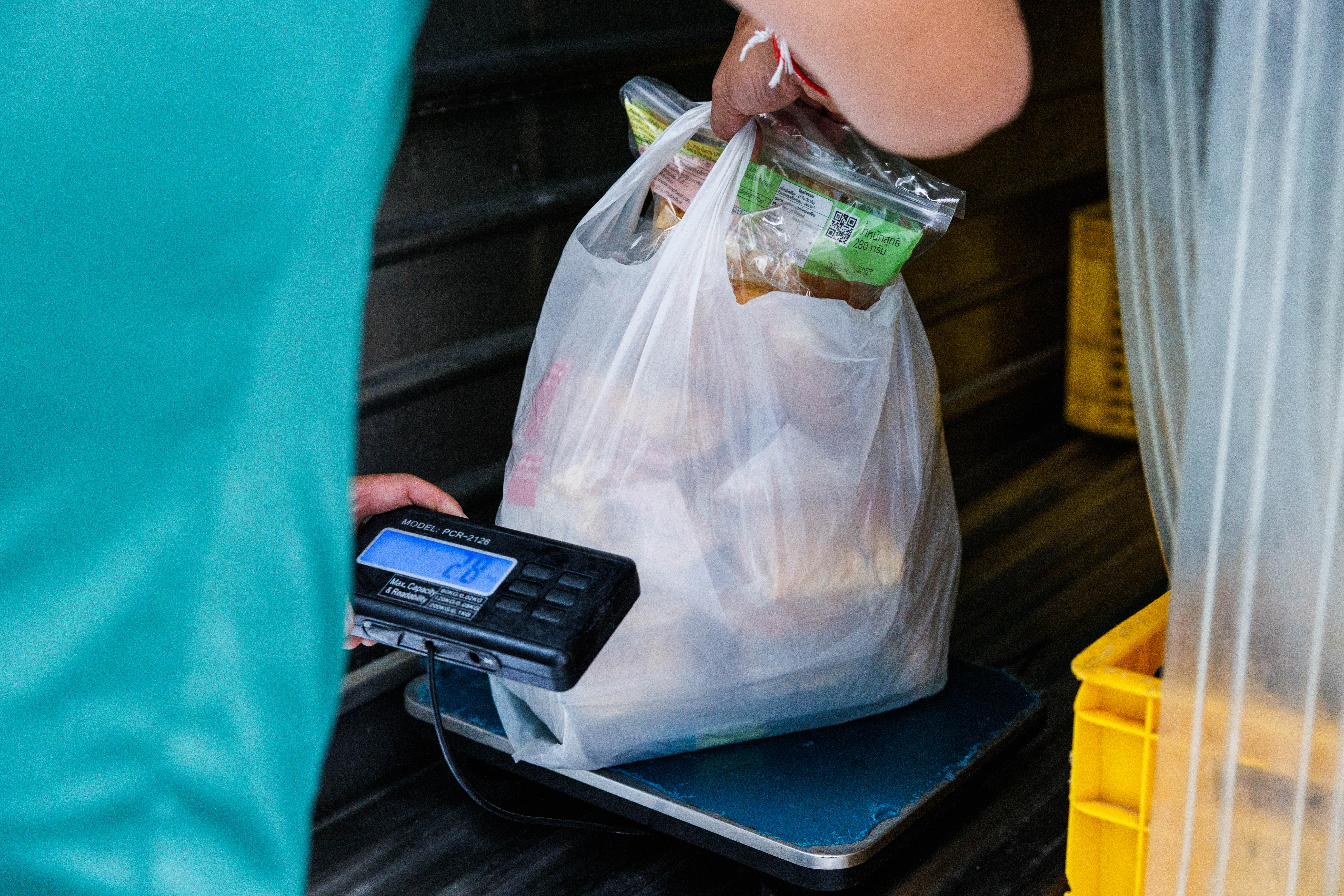
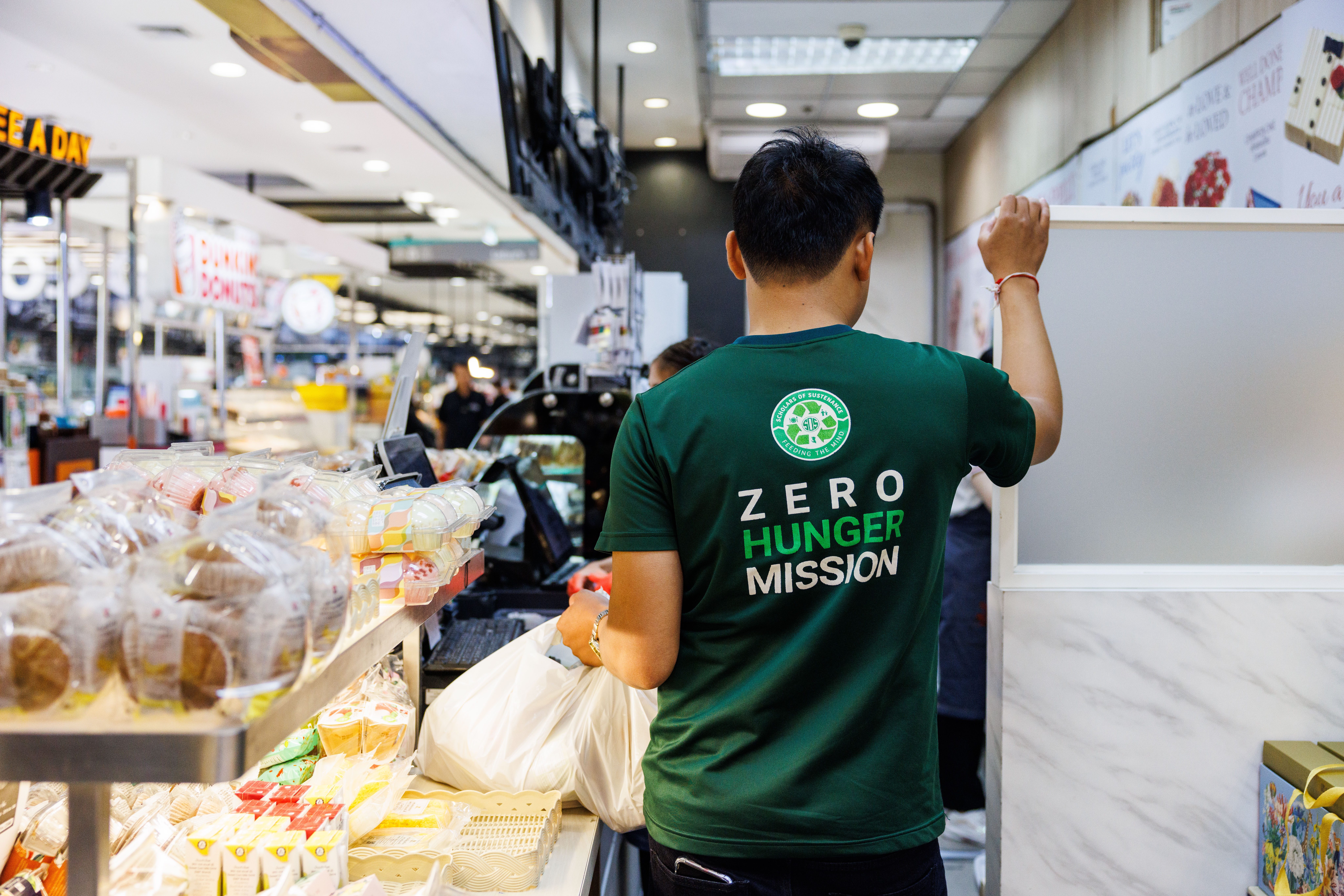
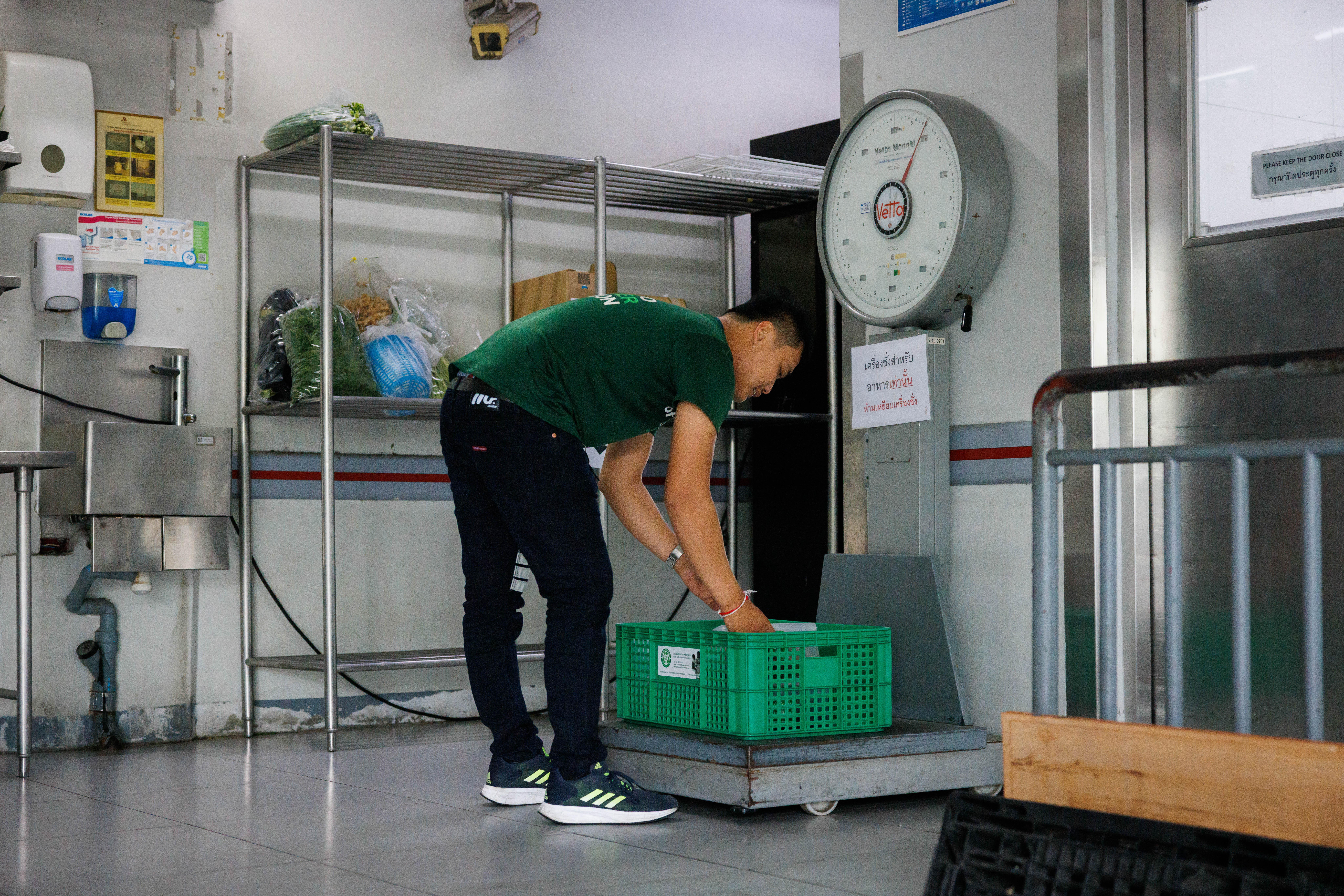

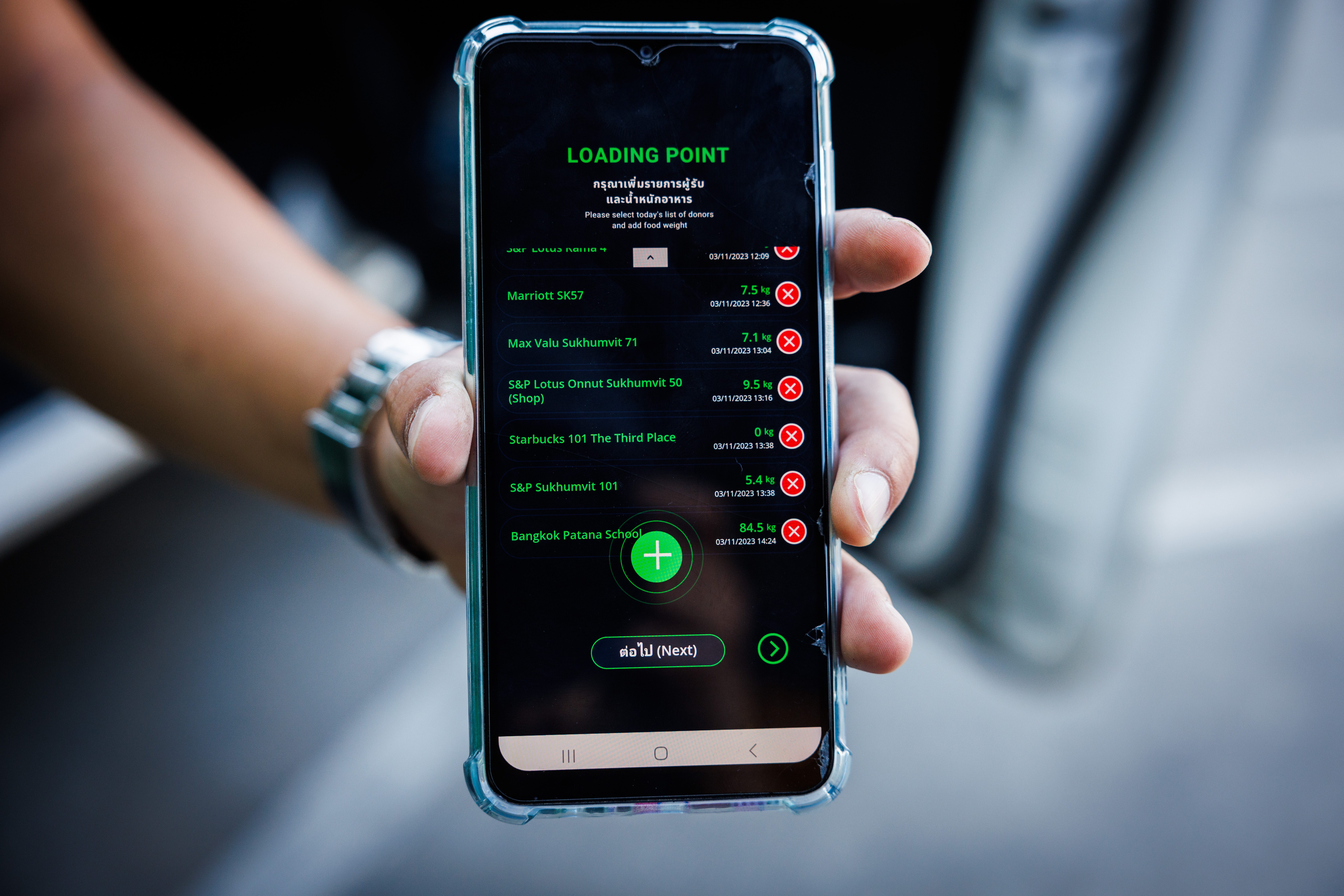
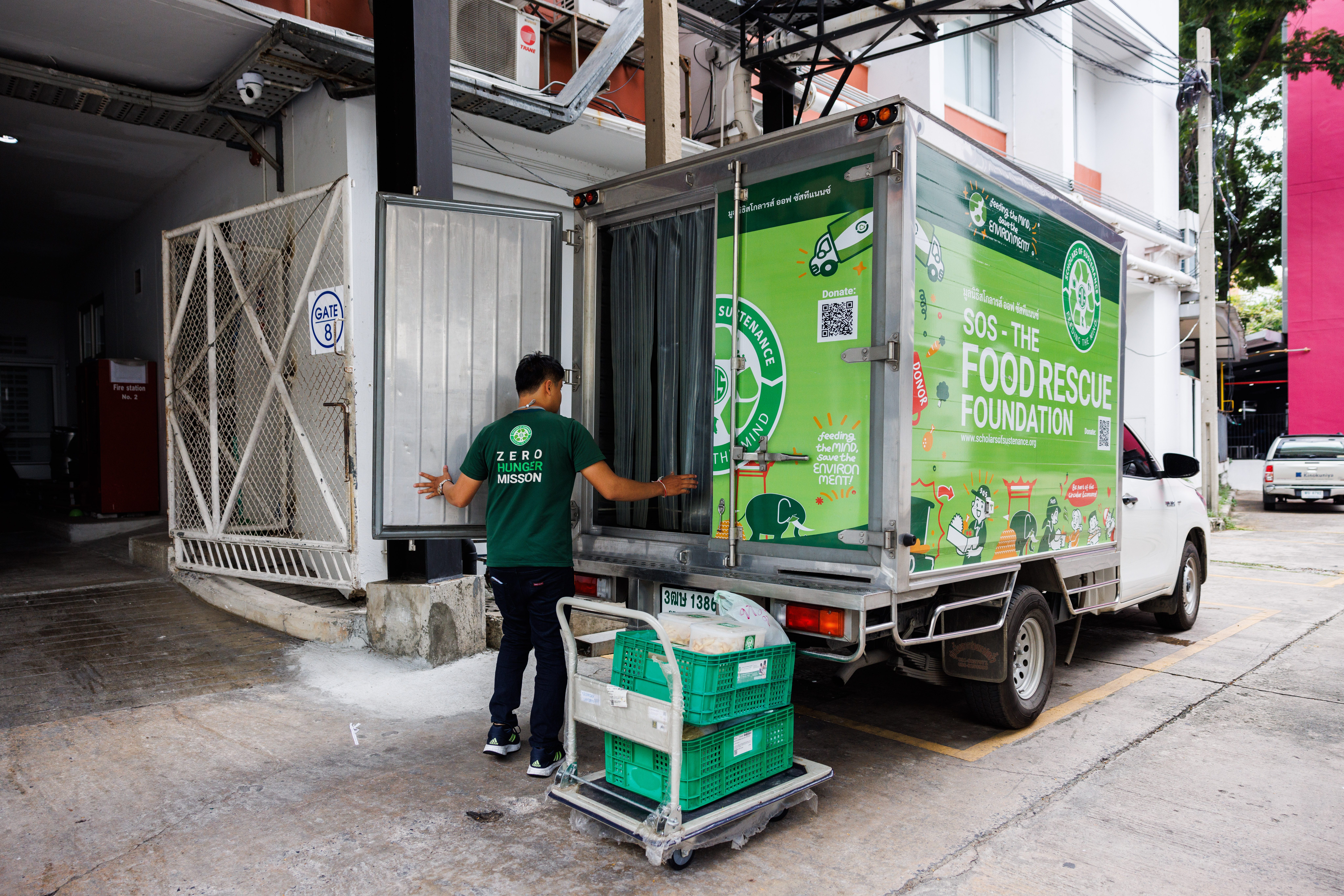
Around 5 p.m. on Friday Uttha arrives at the On Nut 14 Rai Community where he is greeted by one of the community’s leaders, Peerathon Seniwong.
The On Nut 14 Rai Community is made up of 280 families, nearly 2,000 people, many who make their living off informal work, including trash and waste collection. In 2005, Seniwong founded the Zero Baht Store to help reduce poverty and waste in his community.
Seniwong realized that by collecting the waste as a community and bringing in larger amounts, he could negotiate deals with the recycling centers and get a better price than on his own. Seniwong uses the cash earned from the recycling center to stock the Zero Baht Store with items such as non-perishable foods, cleaning and cooking supplies, hygiene products, and more.
“The concept of the Zero Baht Store is simple,” said Seniwong. “If you go to a normal store or market, you spend money on everything. But when our community members come here, they spend no money and use waste they have collected as payment. For example, you come to the Zero Baht Store, weigh your recycled bottles on the scale, and you can purchase anything in the store to the equivalent of 100 baht, and we have even replicated this model in other stores around the community.”
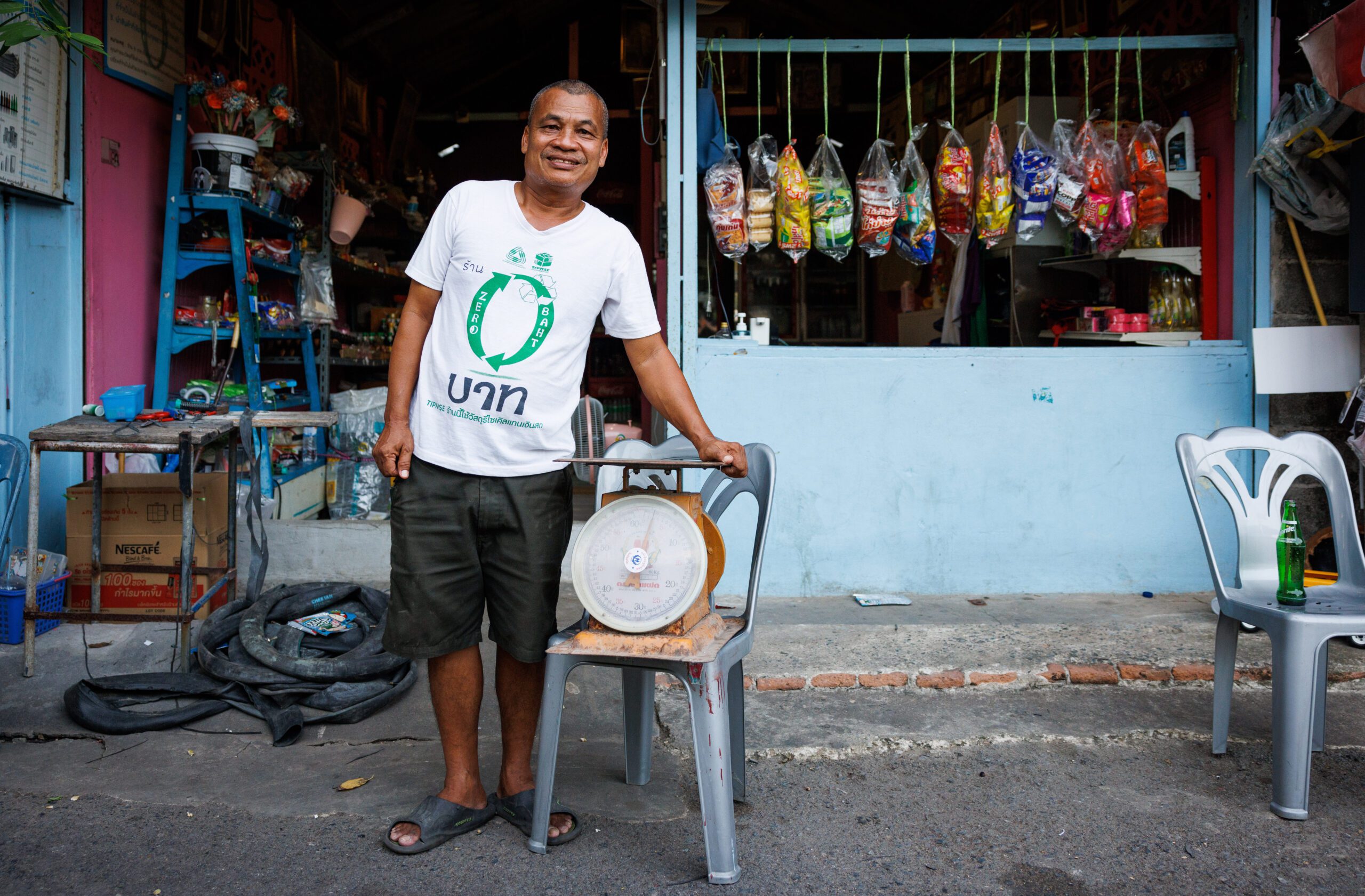
One thing that Seniwong had trouble sustaining and purchasing for the Zero Baht Store was fresh food for the community. SOS Bangkok began distributing food to the On Nut 14 Rai Community six years ago, and Seniwong saw it as a harmonious partnership.
“To me, the food we receive is not ‘surplus,’ and it’s definitely not unwanted,” said Seniwong.
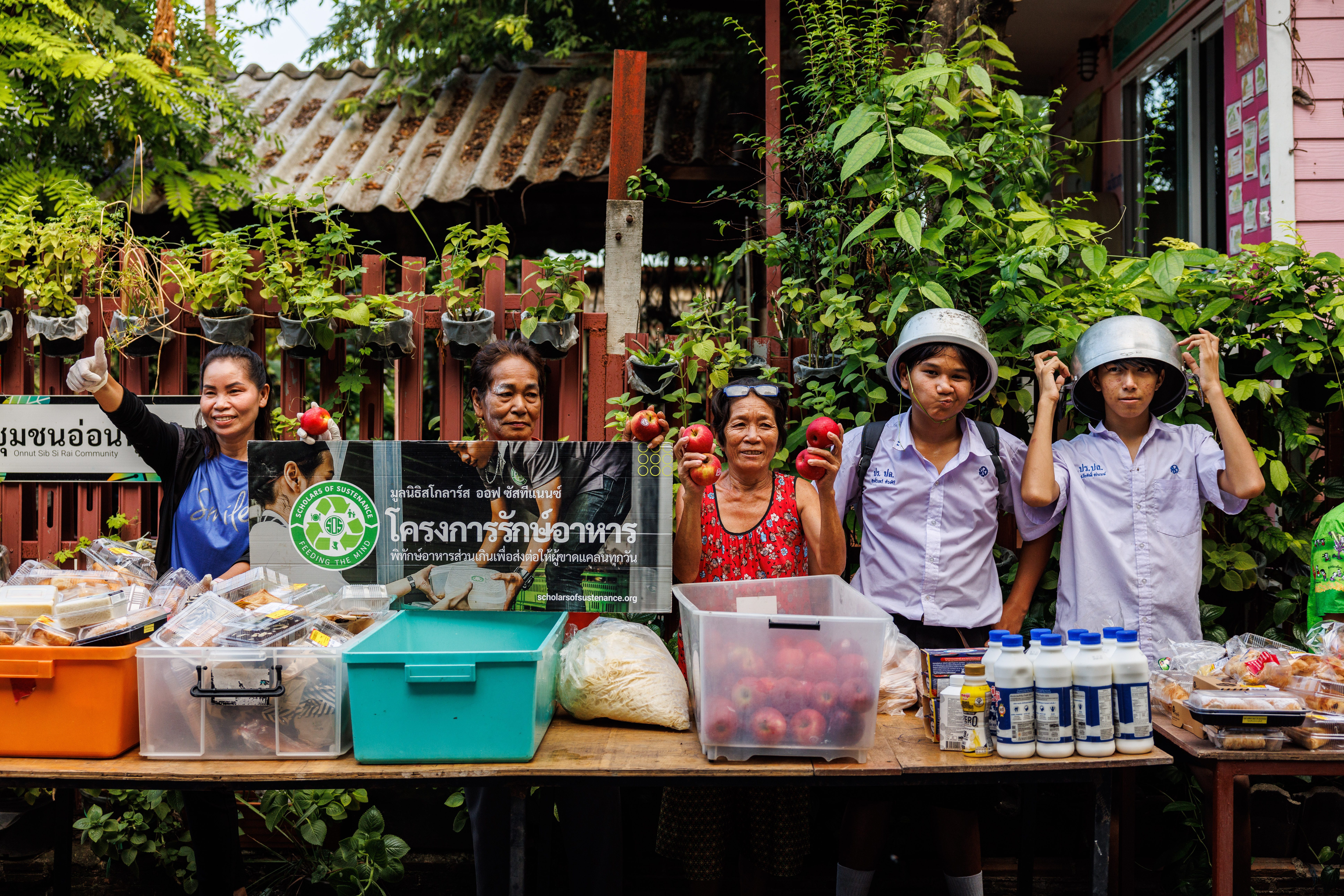
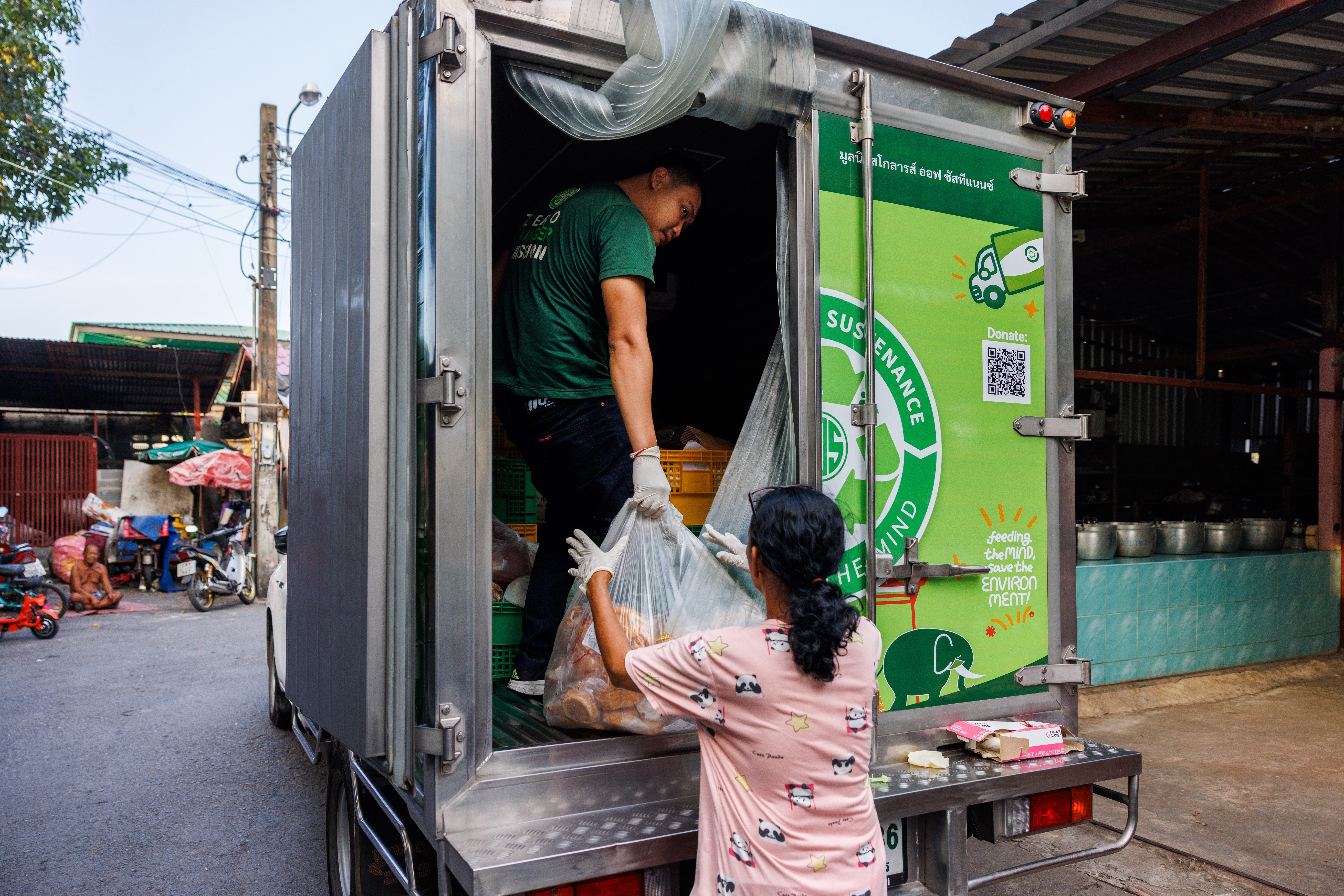
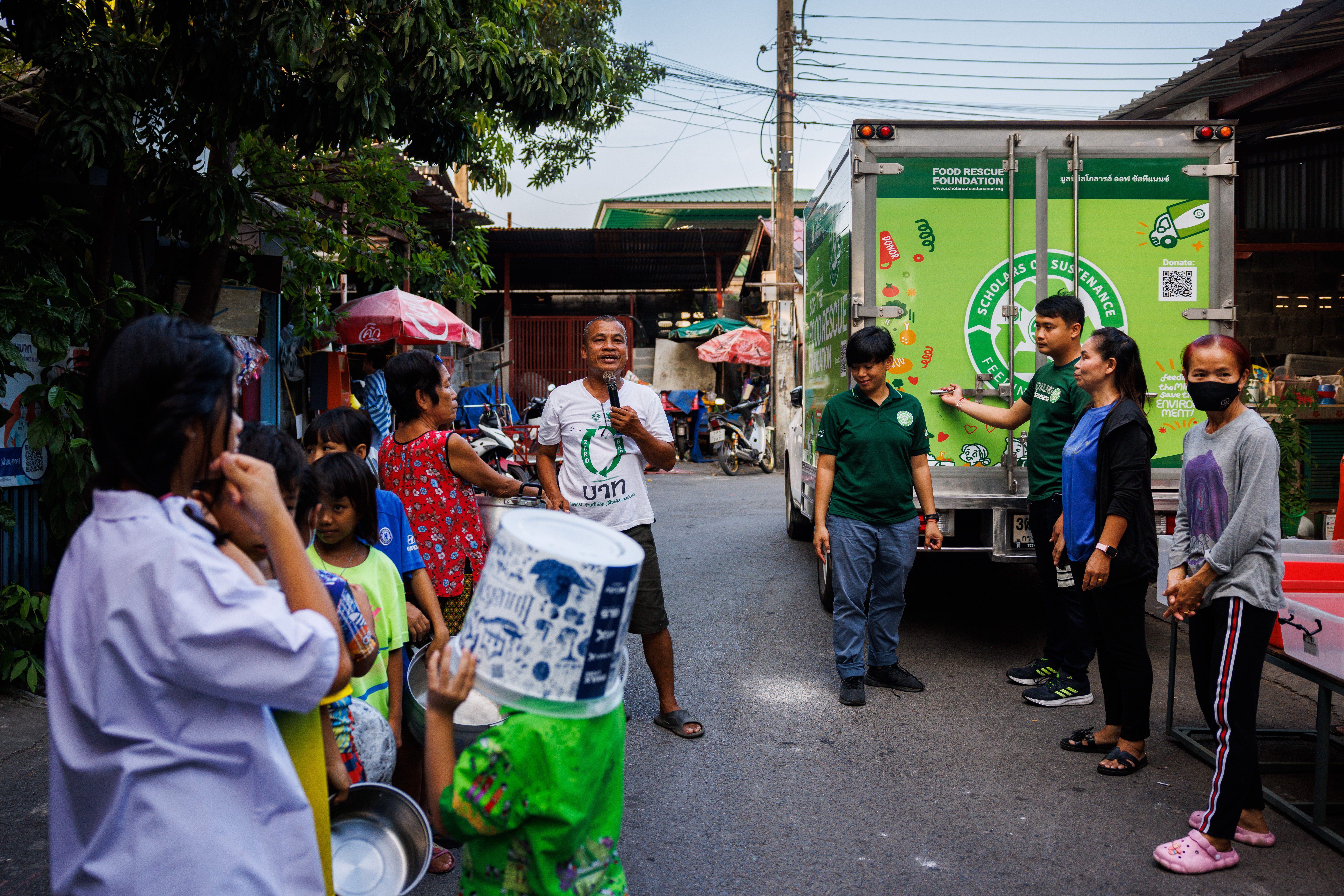
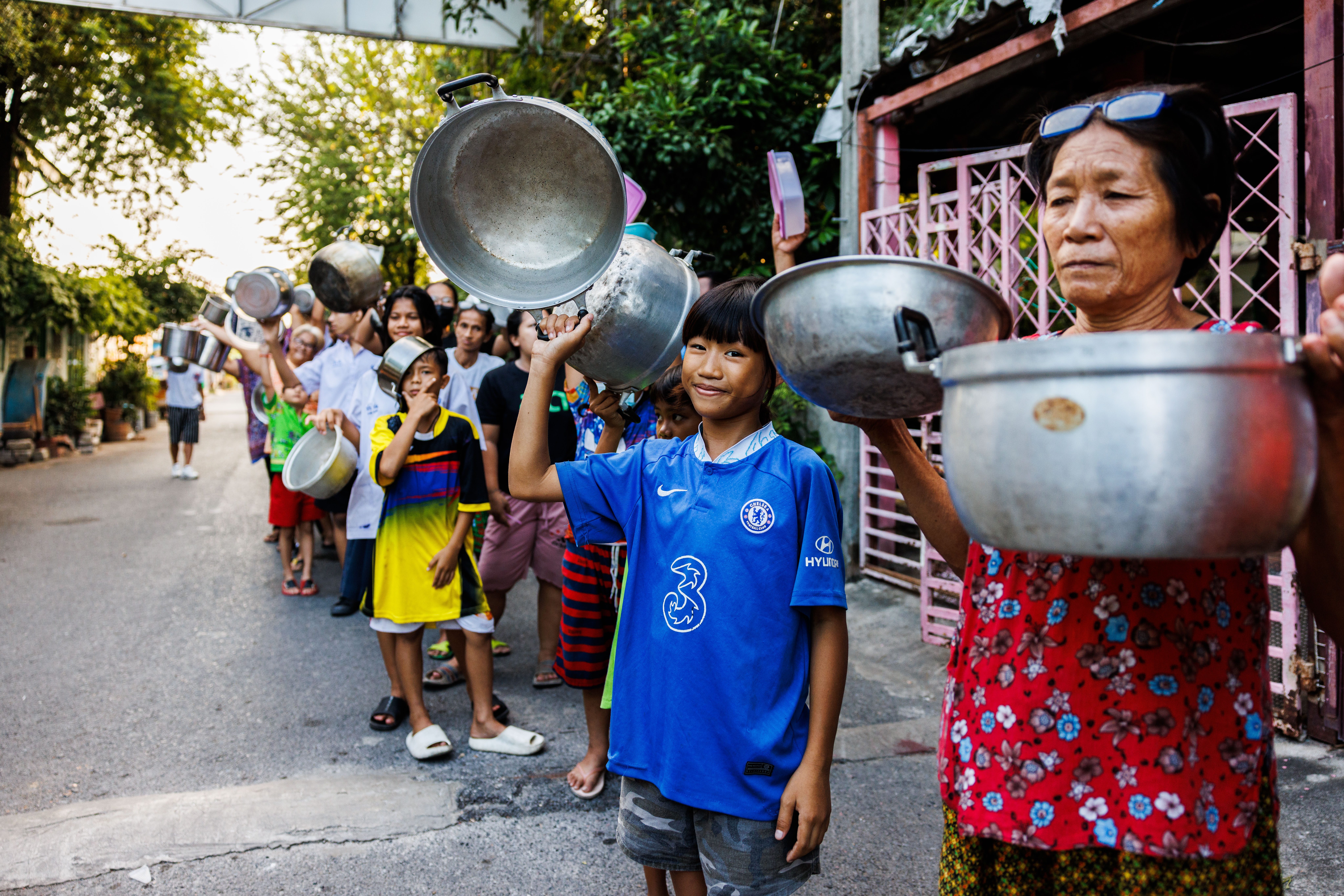
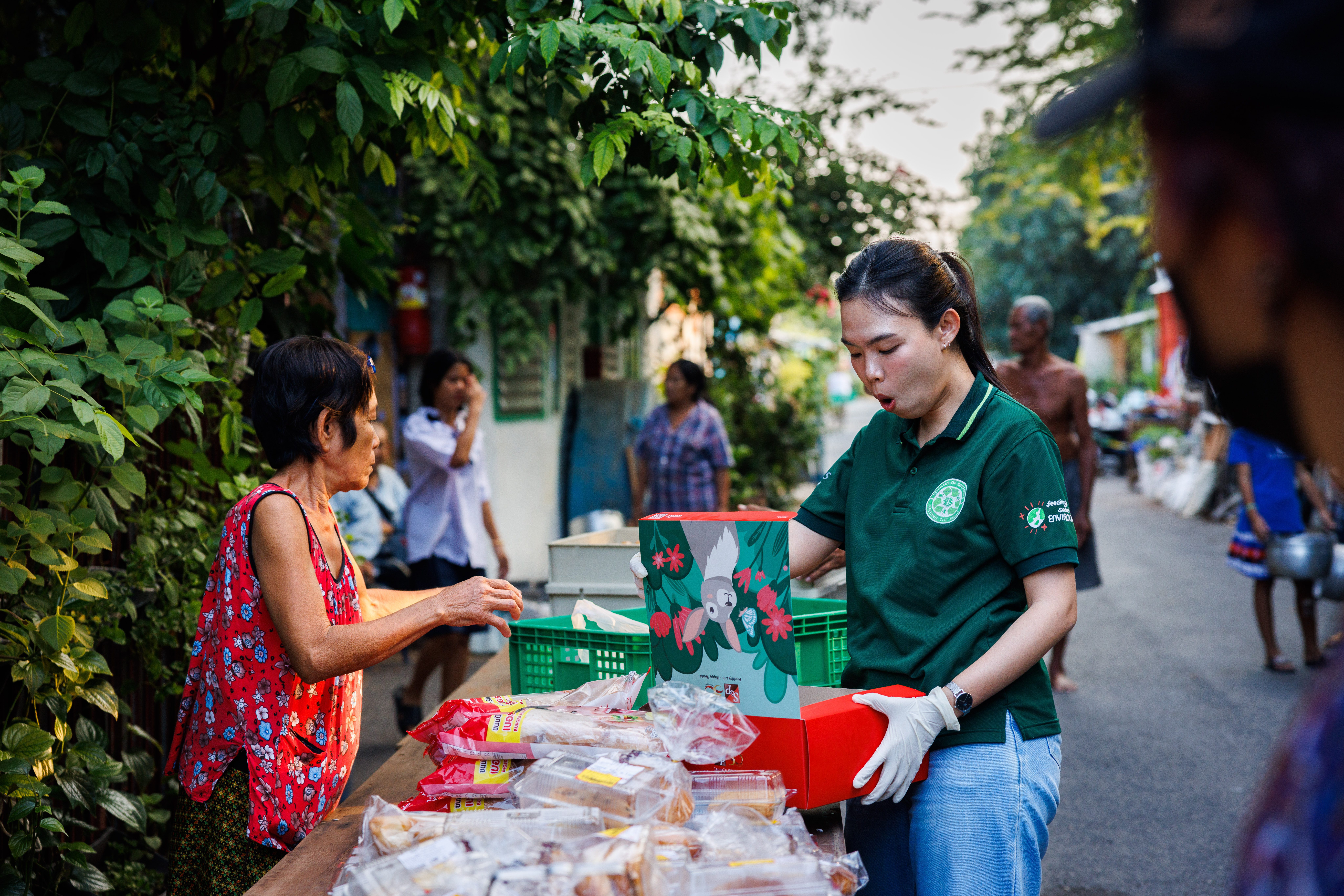
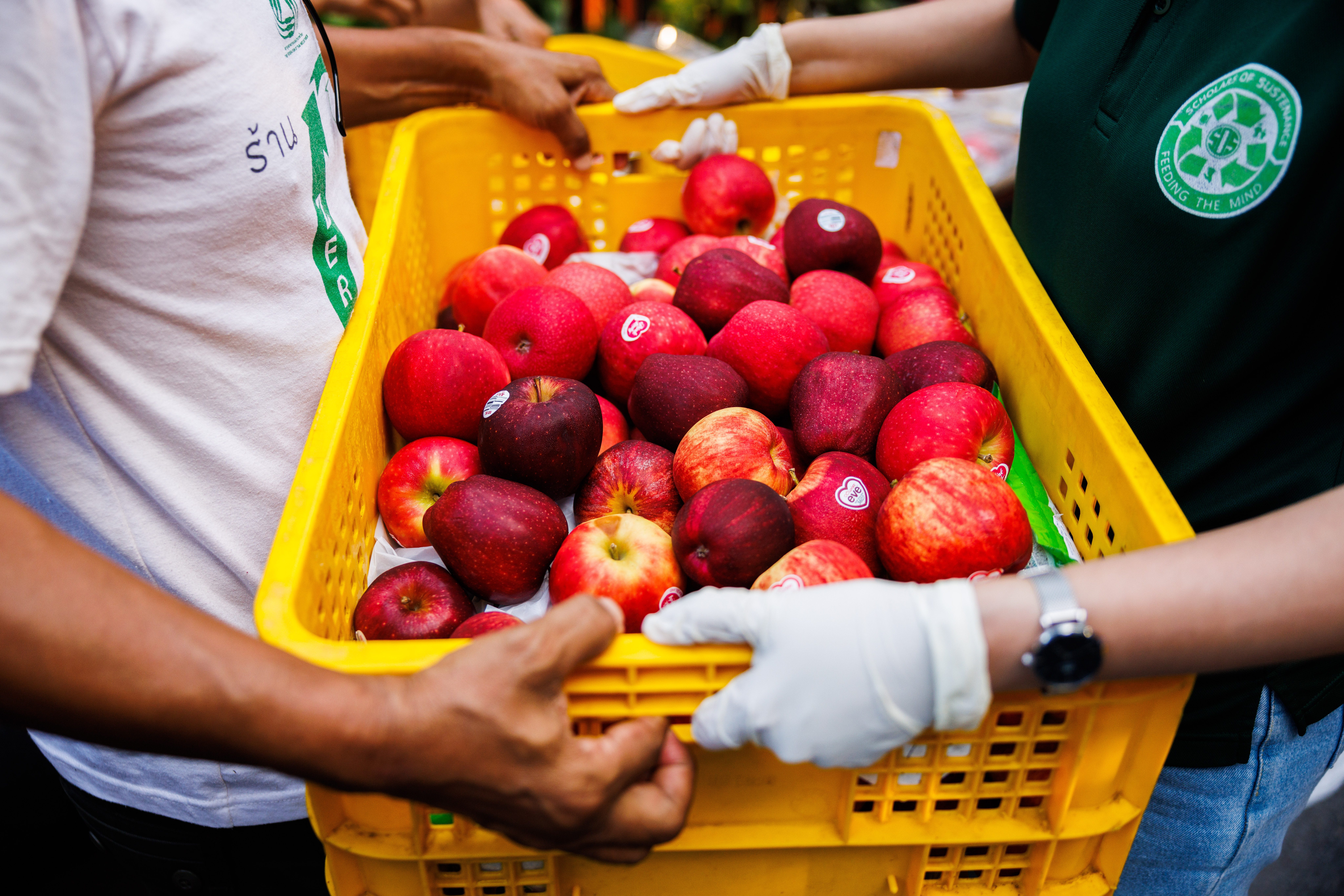


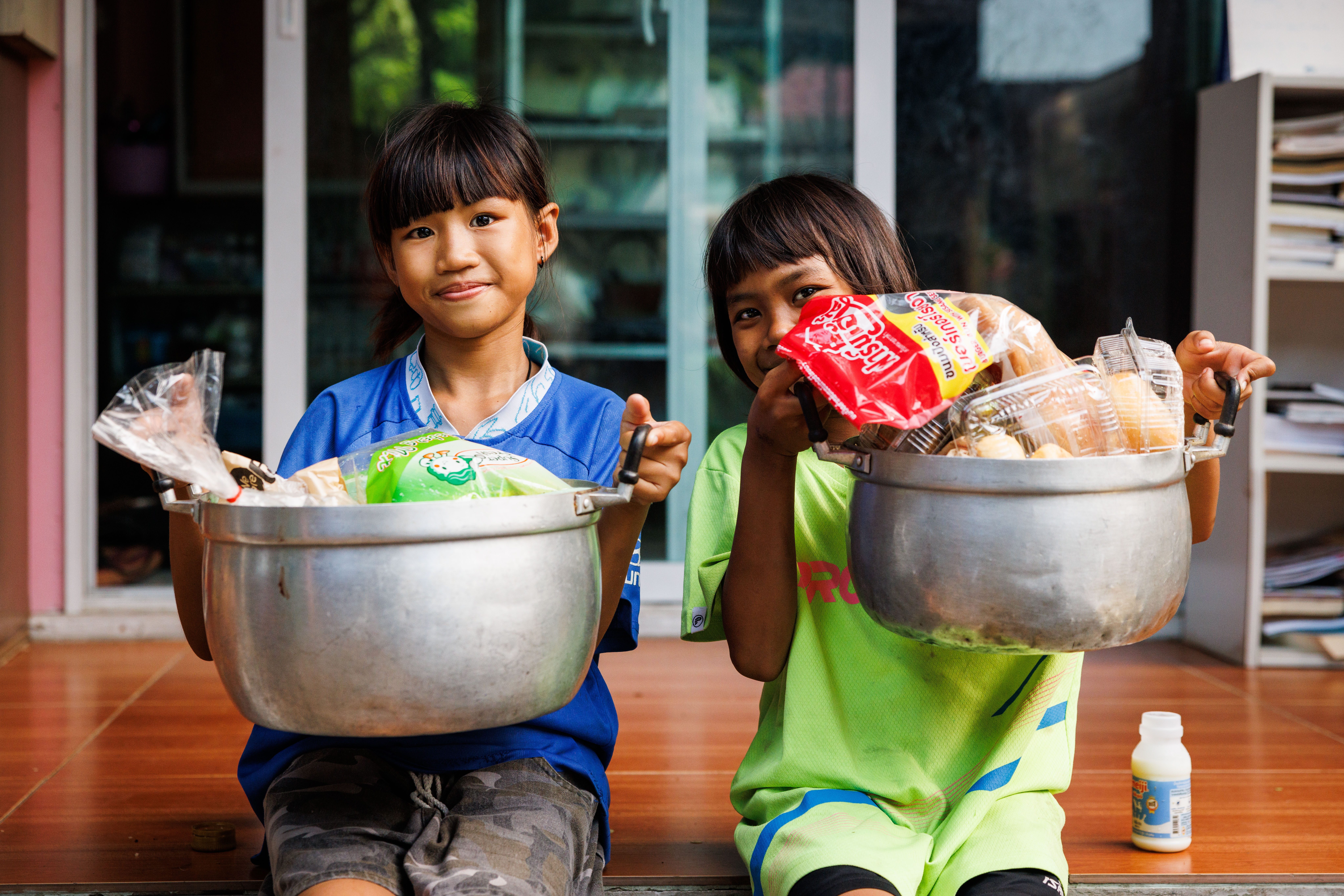
Every Friday, the SOS Bangkok team delivers approximately 250 kilograms of food to the On Nut 14 Rai Community and every Friday, the community is out in preparation for this event, singing songs, cheering, playing games, and truly celebrating the arrival of Uttha and SOS as a community.
“It is lovely to see everyone come here to laugh, cheer, and do all kinds of things together,” said Seniwong. “While I am happy that we are nourishing the community, it makes it even better and even more important when everyone comes here to get food with a smile.”
